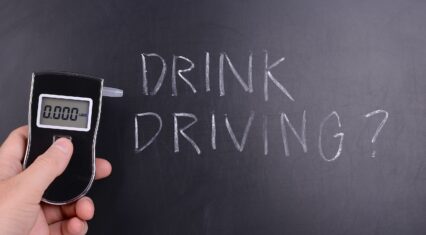An effective apology letter for a driving or traffic offence can help convince a Magistrate or Judge reading it to give a more lenient sentence in court if you intend on pleading guilty.
Sample Apology Letter if charged with a driving or traffic offence
Typed Letterhead here if possible i.e. HIJ Pty Ltd
Date:
To: The Presiding Local Court Magistrate or District Court Judge
Name the specific court I.e. Parramatta Local Court
Your Honour,
GENERAL TOPICS TO BE COVERED
- Outline an acceptance of responsibility, remorse and insight into your driving offence. For example, “I have reflected on my regrettable offending conduct and I acknowledge the seriousness of the offence and harm/potential harm caused.” You may also outline what you learned from completing the traffic offenders program, and even outline an experience shared by one of the presenter from the program.
- Your age.
- Briefly outline, if applicably, that you will not re-offend. This give the court re-assurance.
- Briefly outline whether you have disclosed your driving offence to others, and the shame this
made you feel. - Briefly outline the embarrassment you felt/feel from going through the police or court
procedure. - Outline your employment circumstances, including:
- Your job role and period of time in this job
- Period of time you have worked in this industry for
- Extent of hard work you have put in to reach this position
- If your job requires you to have a valid driver licence then outline this and briefly explain why. You may express how often you drive and destinations you travel to for work. You should also have evidence to back this up by having a letter from your employer or employment contract.
- Outline what kind of financial or other impact your employer will suffer if you were to no longer work there and briefly outline why. Some other evidence to back this up should also be obtained. i.e. perhaps it will be very difficult for your position to be replaced due to the skills and knowledge you possess in the company.
- Outline whether a criminal conviction will affect your job and why. i.e. your employer may have a policy requirement that your role be fulfilled by someone with no convictions. It is important to have evidence to back this up.
- If your role is subject to criminal background checks or security licence permit requirements then you may briefly outline this with an explanation as to the impact a conviction will likely have on these requirements. Evidence to back this up should also be obtained.
- Outline your personal circumstances and commitments, including:
- Any dependents i.e. family members, who rely on you to have a valid driver licence to drive them and an outline of why.
- Any dependents who rely on your income. This can include children.
- Any mental illness or physical health issues you suffer.
- Briefly outline any significant financial expenses you have and extent of contributions your income makes to them.
- Outline what if any impact a licence disqualification or suspension will have on:
- Your ability to get a job of your chosen field; or
- Your ability to be accepted in a chosen course; or
- Getting registered into a chosen professional occupation by a governing body.
- Any charity contributions you have made or currently make.
- Brief outline of the rehabilitative steps you have taken to date to convince the Judge or Magistrate that you will not re-offend. You can demonstrate this by:
- Outlining any treatment or programs you’ve completed to address any factors that appears to have contributed to you committing the offence, such as mental health counselling from a psychologist or drug & alcohol counselling.
- Outline what you’ve learned from the traffic offenders program or MERIT program.
- Outline briefly how you feel after completing this course or program.
Yours faithfully.
Signed
Print your name here
FAQ
- Stick to keeping your apology letter to one page and no more. Magistrates and Judges have only a limited period of time to spend on any one case on the day. They are required to get through lots of cases in a day in a highly pressured and high performing role. It’s important to only outline relevant points in your apology letter. It is recommended to have an experience traffic lawyer to review it.
- Have your apology letter typed, signed and dated before handing it to the court.
- Ensure that your apology letter makes sense with no spelling or grammatical errors in it.
- Hand the Judge or Magistrate with the original apology letter, not a photocopy.
- Use your own words and sentences to communicate what you want to say.
- Always refer to the Magistrate or Judge as “Your Honour”.
- Avoid telling the Judge or Magistrate what to do. For example, do not say things like, “you should deal with me case with a section 10 or conditional release order without a conviction”, or “you should remove all my disqualification periods because”.
- While you can provide a reasonable explanation for your conduct, but always avoid providing an excuse for your offence. This also means not to shift blame to others. Doing this will show that you have no remorse or insight which will likely lead to worse outcome.
- Avoid copying other people’s apology letters or using other people’s words or sentences. A Judge or Magistrate is very experienced and will likely notice this.
- I have learned many things from completing the traffic offenders program which has reinforced my understanding and insight into…
- I acknowledge that my conduct was serious and something I regret doing because…
- I will not ever commit this offence again…
- I have felt shame and regret after reflecting on my driving behaviour which has been magnified after disclosing it to others, including…
- I acknowledge that my driving offence caused/could have potentially caused harm to others on the road, including myself…
- Counselling has helped me in many ways, including…
With over 25-years-experience, our leading traffic defence lawyers have achieved exceptional results
across all serious traffic and driving offences, including:
- Avoiding licence disqualification and demerit points by getting section 10 dismissals and
conditional release orders without conviction. - Avoiding convictions for driving offences with s10 dismissals and conditional release orders.
- Avoiding prison sentences for very serious traffic offences.
- Getting serious driving and traffic charges withdrawn early or downgraded to less serious charges.
 (02) 8606 2218
(02) 8606 2218









